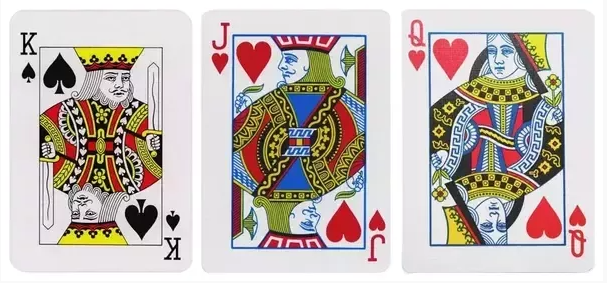Ask The Wizard #328
If you roll a single die 20 times, what is the probability you hit all six sides at least once?
The answer could be approximated as expressed 1 - (prob(no 1's) + prob(no 2's) + ... + prob(no 6's)) = 1 - 6*(5/6)^20 = apx. 0.84349568.
However that would double-subtract the situations where two different sides never got rolled. There are combin(6,2)=15 ways to choose two sides out of six. The probability that any two given sides never get rolled is (4/6)^20. We need to add those to the probability, because they got subtracted twice in the previous step. So, now we're at 1 - 6*(5/6)^20 + 15*(4/6)^20 = apx. 0.84800661.
This question is asked and discussed in my forum at Wizard of Vegas.
However, if any group of three sides that had never been rolled would have been triple-subtracted in the first step and triple-added in the second step. We need to subtract them back out as a state where not all six sides were rolled. There are combin(6,3) = 20 ways to choose three sides out of six. The probability that any specific three sides are never rolled is (3/6)^20. So, now we're at 1 - 6*(5/6)^20 + 15*(4/6)^20 - 20*(3/6)^20= apx. 0.847987537.
However, if any group of four sides that had never been rolled would have been quadruple-subtracted in the first step, quadruple-added in the second step, and quadruple subtracted in the third step. We need to add them back in, because each such state was already subtracted out twice. There are combin(6,4) = 15 ways to choose four sides out of six. The probability that any specific four sides are never rolled is (2/6)^20. So, now we're at 1 - 6*(5/6)^20 + 15*(4/6)^20 - 20*(3/6)^20 + 15*(2/6)^20 = apx. 0.84798754089.
However, if all 20 rolls were the same numbers, this situation would have been quintuple-subtracted in the first step, quintuple-added in the first step, quintuple-subtracted in the third step, and quintuple-added in the fourth step. We need to subtracted them back out. So, now we're at 1 - 6*(5/6)^20 + 15*(4/6)^20 - 20*(3/6)^20 + 15*(2/6)^20 - 6*(1/6)^20 = apx. 0.84798754089.
So the answer is 1-6*(5/6)^20+COMBIN(6,4)*(4/6)^20-COMBIN(6,3)*(3/6)^20+COMBIN(6,2)*(2/6)^20-6*(1/6)^20 = apx. 0.84798754089.
A sign has ten light bulb sockets, each with a light bulb in it. Each socket takes a different size light bulb. Besides the light bulb already in each socket, there is one spare per socket. The life of each light bulb is distributed exponentially*, with a mean lifetime of one day. As soon as a light bulb dies, the spare will immediately replace it, if there still is a spare for that socket.
What is the expected time until the last light bulb burns out?
Here is my solution (PDF).
This question is asked and discussed in my forum at Wizard of Vegas.
A casino dealer is working on a new Three Card Poker variant. She takes all the face cards from a standard deck and thoroughly shuffles them. She then deals 3 cards to Player #1, three cards to Player #2, three cards to Player #3, and the final three cards to Player #4. What is the probability that all four hands will contain a straight (J-Q-K of any suit)?

The probability the first hand is A-K-Q is 1*(8/11)*(4/10) = 29.09%.
The probability the second hand is A-K-Q, given the first already is, equals 1*(6/8)*(3/7) = 32.14%.
The probability the third hand is A-K-Q, given the first and second already are, equals 1*(4/5)*(2/4) = 40.00%
The cards left must be A-K-Q, given the first three hands are. Thus, the probability is the product of the three above probabilities, which is 216/5775 = apx. 0.037402597.
This question is asked and discussed in my forum at Wizard of Vegas.
I am showing a profit after 6,000 sports bets against spread, laying 11 to win 10. What are the odds of achieving that, assuming a 50% chance of winning each bet?
You can expect to be down 6000/22 = 272.73 bets.
The standard deviation of 6000 bets is sqrt(6000)*0.954545 = 73.93877.
Thus, you are 272.73/73.94 = 3.688556 standard deviations above expectations. Using the Gaussian curve, the probability of being up this many standard deviations or more is apx. 0.000112765 = apx. 1 in 8868.




